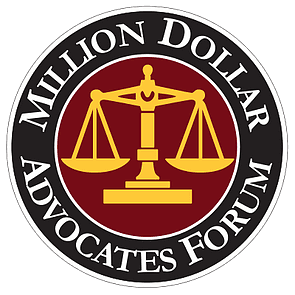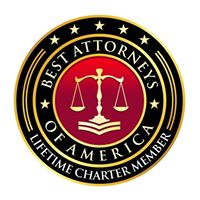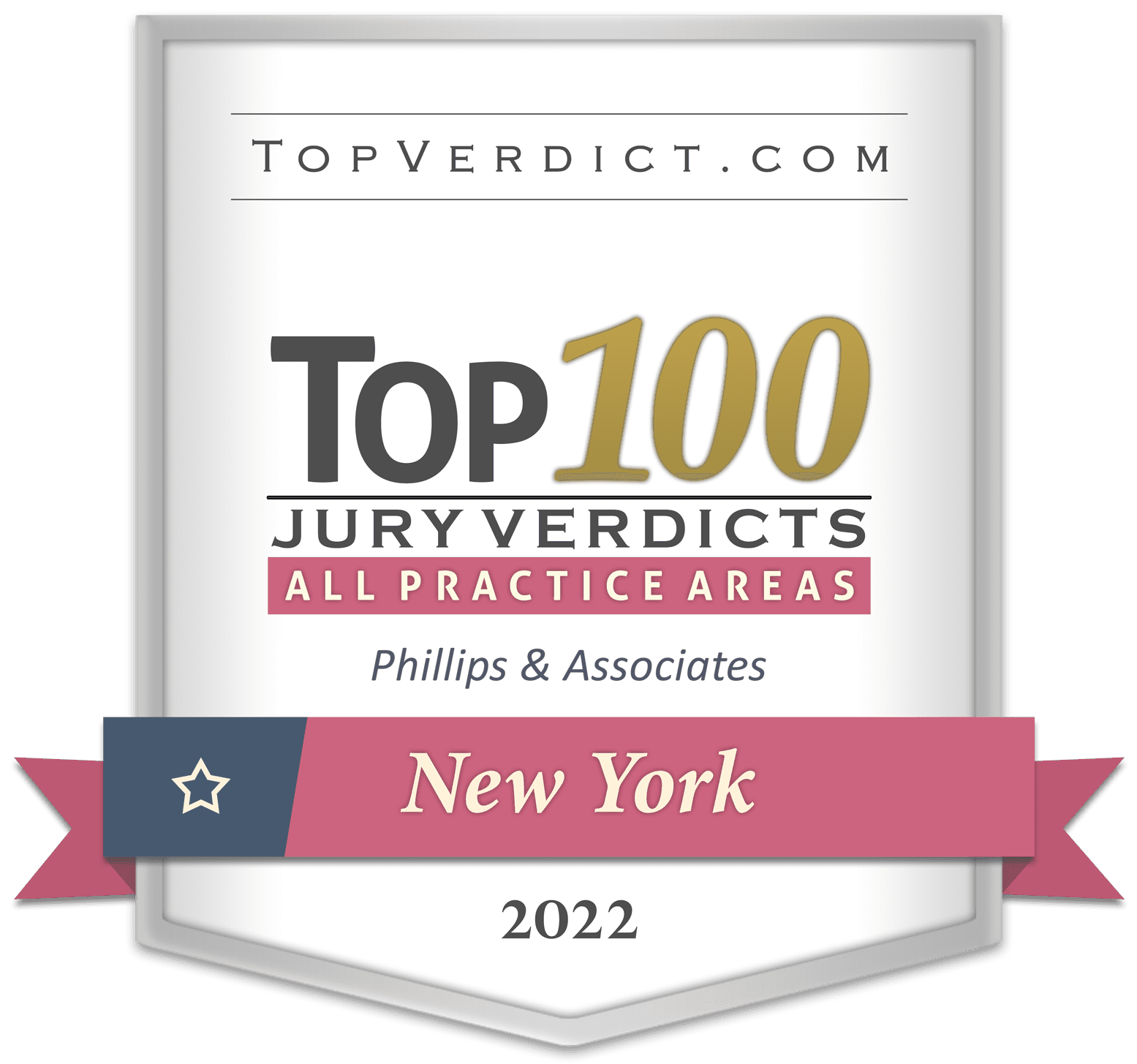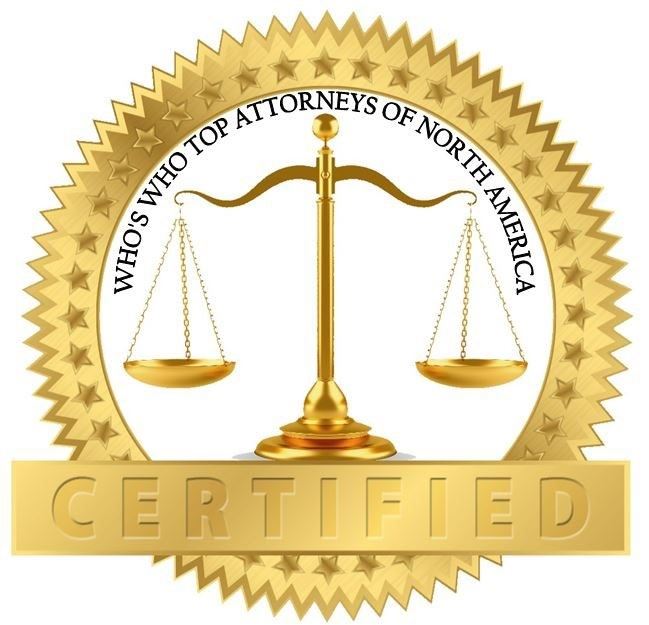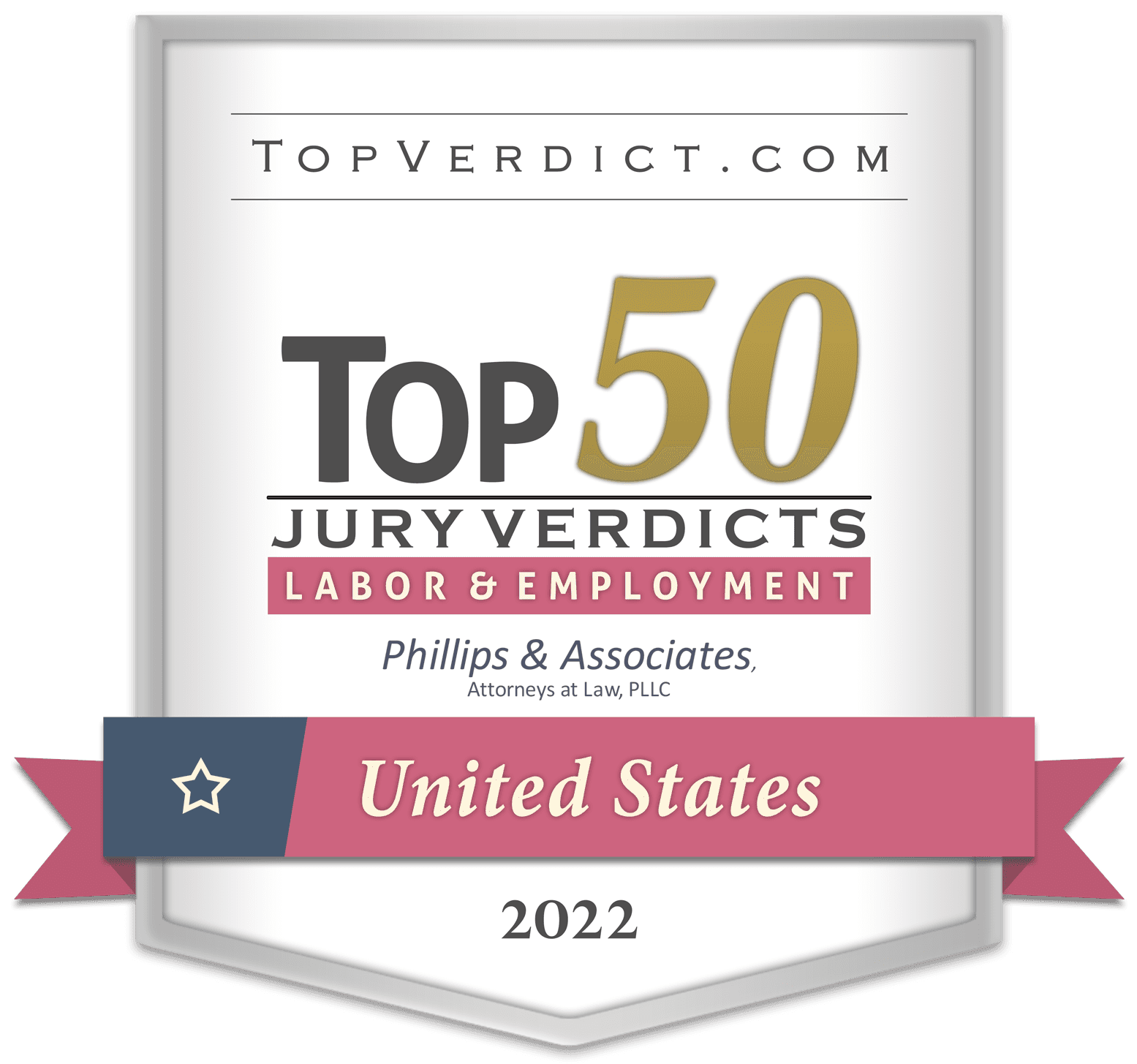
Disability Discrimination and the EEOC
Dedicated Employment Lawyers Fighting for New York City Workers
The Americans with Disabilities Act (ADA) is the federal law that prohibits disability discrimination. The Equal Employment Opportunity Commission (EEOC) enforces the law, and it provides guidance about what constitutes disability discrimination, as well as what is considered a "reasonable accommodation" under the ADA. If you are concerned about disability discrimination and the EEOC, the experienced New York City disability discrimination lawyers at Phillips & Associates may be able to help you understand your rights and represent you in litigation.
Disability Discrimination and the EEOC
Workplace disability discrimination occurs if you are treated adversely by an employer because you have a covered disability. It can also happen if an employer treats a job applicant or employee unfavorably due to a perceived disability or a history of disability, or because you have a physical or mental impairment that is not transitory. You are also protected if your spouse has a disability; your employer may not discriminate against you due to your spouse's disability.
Types of Disabilities
Not everybody who has some sort of medical condition is protected under the ADA. You need to have a disability that meets the ADA definition. There are three ways that you can show that you have a disability:
- You have a physical or mental condition that substantially restricts a major life activity.
- You have a history of disability; or
- You are believed to have a physical or mental impairment that is not transitory and minor, even if you do not actually have it.
Additionally, the New York State Human Rights Law and the New York City Human Rights law have their own broader definitions of what can be considered a disability. You may be considered disabled under the State or City Law, even though you are not considered disabled under the federal law. It’s important to speak to an employment law firm to help understate the differences in the laws.
Discrimination
Your employer cannot discriminate against you with regard to any term or condition of employment. You should not be faced with discrimination through termination, hiring, job assignments, promotions, layoffs, or benefits. For example, an employer is not allowed to not hire you because you are in a wheelchair. Similarly, if you acquire a disabling form of cancer, your employer cannot disregard you for promotions or training.
Harassment
Under the ADA, it is illegal to harass a job applicant or employee due to a disability, a history of disability, or a perceived disability. A harasser could be a supervisor, manager, coworker, client, or customer. A minor, isolated incident is not actionable harassment. Instead, harassment consists of serious offensive remarks, actions, or gestures about someone else's disability. The harassment must be so severe or so frequent that it generates a hostile work environment, or else it must result in an adverse job decision, such as termination or demotion. Again, the standard for a hostile work environment is lower under the New York City Human Rights Law. An employment law firm can analyze the workplace harassment you are experiencing to see if the hostile work environment is actionable.
Reasonable Accommodations
Under the ADA, your employer must provide you with a reasonable accommodation if you are a qualified applicant or employee with a disability unless doing so would trigger an undue hardship. A reasonable accommodation needs to be provided, assuming that you are qualified, whether you are working part-time or full-time, and even if you are considered probationary. However, you need to let the employer know that an accommodation is necessary.
A reasonable accommodation is an alteration to the environment or policies at work so that you can apply for a job or perform a job as a person with a disability. For example, a reasonable accommodation for a wheelchair user might include building a wheelchair ramp. A reasonable accommodation for someone who is blind might include providing a reader. Reasonable accommodations could also include modifications of equipment, a reassignment to a vacant position, a part-time or modified work schedule, job restructuring, or changing of policies or training materials. State and local discrimination laws have a lower, broader definition of what may be a reasonable accommodation. Additionally, time off can be seen as a reasonable accommodation. Some people are fired when they return from FMLA leave. This may be illegal if the employer was able to provide additional time off as an accommodation.
Undue Hardship
The definition of an undue hardship varies, depending on the employer's size, financial resources, and business operations. The employer does not need to give you exactly the accommodation that you request under the ADA. Generally, the employer must engage in a good-faith interactive process to determine what would be a reasonable accommodation in light of your disability. However, an employer is not allowed to deny an accommodation only because some expenses are involved.
Were You Fired After Requesting a Reasonable Accommodation?
Many times, a person will call our office and say, “I was fired shortly after requesting a reasonable accommodation.” “What can I do?” The answer depends on a number of factors including, what is your disability, is your accommodation reasonable, and whether your accommodation creates an undue hardship for your employer. Therefore, in order to determine whether your reasonable accommodation is appropriate, your employer needs to engage in an interactive process with you before any termination. If you were terminated shortly after you requested a reasonable accommodation, call the employment law firm of Phillips & Associates. If you were fired right after returning from FMLA, you should also call us to better understand your rights. Our consultation is free. (866) 229-9441.
Explore Your Options with a Disability Discrimination Attorney in New York City
You must file a charge with the EEOC before filing a federal disability discrimination lawsuit. You do not have to file a charge of discrimination with the EEOC if you wish to proceed in State court under the New York State Human Rights Law or the New York City Human Rights Law. An Employment Law Firm can assist in determining where you should file your disability discrimination lawsuit. However, not all valid claims are accepted and resolved by the EEOC. You should consult an attorney about your situation. At Phillips & Associates, our New York City lawyers are ready to help you with issues related to disability discrimination and the EEOC. We may be able to develop a strategy to pursue damages. We fight employment discrimination in Manhattan, the Bronx, Queens, Brooklyn, and Staten Island, as well as Nassau and Suffolk Counties, Westchester, New Jersey, and Philadelphia. Contact us at our employment law firm at (866) 229-9441 or complete our online form.
What Our Clients Say:
-
"He covered every angle and was able to help me with my dispute. I would recommend Jesse Weinstein and Phillips and Associates in the future to anyone."
- Margaret -
"Being in the restaurant industry for more than 30 years I can say that this law firm is the number one choice for workers in the restaurant business that need to sue their company for wrongful termination."
- Massimo -
"He was extremely patient and understanding throughout the process and remained professional and consistent even when I could not. I really felt like he had my back and I didn't have to worry."
- Karen



.2306081245574.png)

